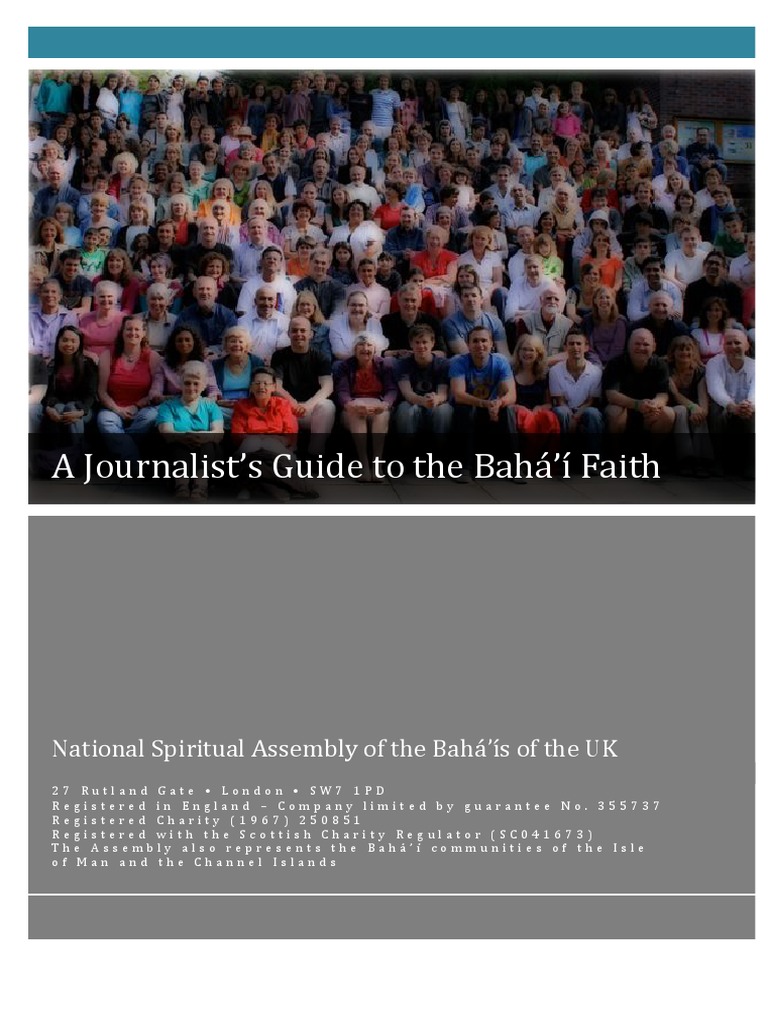Religion has been a cornerstone of human civilization, shaping cultures, morals, and philosophies throughout time. Yet, in an age characterized by rapid advancements and transformations, one might pose a provocative question: Do we still need religion? This inquiry invites a participative exploration, particularly through the lens of the Bahá’í Faith, which heralds a clarion call for unity and spiritual growth. This article aims to elucidate the Bahá’í teachings regarding the necessity of religion, emphasizing its roles in personal development, social cohesion, and global harmony.
To begin with, one must consider the intrinsic nature of humanity. The Bahá’í perspective acknowledges that human beings are inherently social creatures. Our interactions, relationships, and communities provide the very fabric of our existence. Faith, in this context, becomes more than mere belief; it represents a binding agent that fosters connections among individuals. The Bahá’í teachings emphasize that religion serves as a foundation upon which society can build a sense of belonging and identity.
Much like the artful construction of a building, a robust moral framework, underpinned by religious principles, provides stability to individuals and communities. Relationships forged within the crucible of shared beliefs are often more profound, as they are tempered with understanding, compassion, and mutual respect. The Bahá’í Faith posits that religion helps instill virtues such as kindness, integrity, and justice, which are pivotal to nurturing a peaceful society.
Furthermore, Bahá’í teachings perceive religion as an evolving force. Each major world religion, according to Bahá’í beliefs, contributes to the ongoing narrative of humanity. The concept of progressive revelation posits that divine guidance is dispensed through a series of Manifestations of God, each tailored to the needs of the time and the condition of society. This evolution is not only historical but also anticipatory; the Bahá’í Faith asserts that the teachings of Bahá’u’lláh are particularly critical for addressing contemporary challenges.
In exploring why we need religion, it is imperative to highlight its role as a source of moral guidance amid ethical ambiguities. In a world rife with conflict and divisiveness, religious frameworks can act as beacons of hope and clarity. They provide individuals with a compass, helping to navigate the complexities of life, distinguish right from wrong, and align personal aspirations with higher values. The Bahá’í teachings urge believers to engage in the practice of consultation, emphasizing collective wisdom as a means to resolve disputes and arrive at equitable solutions.
Moreover, religion catalyzes personal transformation. The Bahá’í Faith teaches that the purpose of life is to acquire virtues and to contribute positively to the world. This emphasis on personal development requires not merely adherence to doctrines but also an active engagement in spiritual education. The practices of prayer and meditation, encouraged within the Bahá’í community, foster a deeper connection with the divine and facilitate introspection. Such practices are not only beneficial on an individual level; they radiate outward, influencing families, communities, and, ultimately, humanity as a whole.
However, as one ponders the necessity of religion, it becomes crucial to confront the counterargument: that organized religion often engenders division, sectarianism, and discord. This challenge is acknowledged within the Bahá’í teachings, which explicitly advocate for the elimination of prejudice and the promotion of universal brotherhood. Bahá’ís are urged to transcend sectarian boundaries, viewing all religions as conduits toward a common truth. Thus, while religion might be seen as a divisive force, the Bahá’í perspective posits that it is the misapplication of religious tenets rather than the teachings themselves that lead to discord.
Additionally, the Bahá’í Faith promotes the idea of religious harmony and integration. It asserts that different religions, despite their apparent differences, share a fundamental goal: to promote love, justice, and unity. Through interfaith dialogue and cooperation, individuals from diverse backgrounds can collaboratively address the pressing challenges of our time, from poverty to environmental degradation. The Bahá’í emphasis on collaboration fosters a more inclusive worldview, one that rekindles the collective spirit of humanity.
Furthermore, as technology continues to marshal society into a global community, the role of religion in fostering international unity becomes increasingly vital. The Bahá’í teachings advocate for the abolishment of extremes of wealth and poverty and call for the establishment of a just global economy. In this capacity, religion annexes itself not only as a personal spiritual practice but as an instrument toward global governance and ethics. Collective religious action can mobilize individuals toward a shared vision of a just and fair world.
As we contemplate the question of whether religion remains relevant, it is evident that the Bahá’í Faith presents a robust framework for understanding its enduring necessity. By recognizing the roles religion plays in personal and communal development, ethical guidance, and global unity, it becomes clear that faith remains a profoundly important aspect of the human experience. Through the lens of Bahá’í teachings, we can appreciate that religion, when understood and practiced in its true spirit, is a vital source of light amid the complexities of contemporary existence. In uniting the hearts and minds of individuals across the globe, the Bahá’í Faith invites us to harness the power of spirituality to illuminate the path toward a harmonious future.
